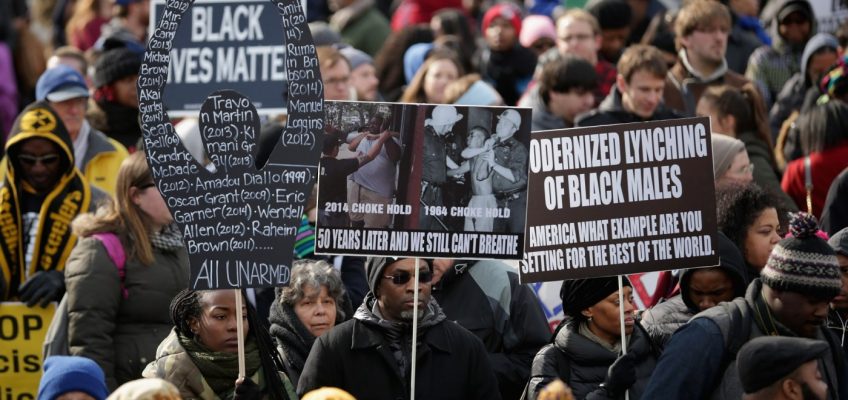Across much of the industrial world, trust in government is low and declining. Why is this happening and why, exactly, does it matter?
An unusually thorough new study looks at these questions and finds answers that are somewhat unexpected and, in one way, more disturbing than you might have guessed.
The fact of diminished trust is hardly a revelation, least of all in countries such as the U.S., where anti-establishment populists have turned politics upside down and elite expertise has become not just distrusted but disdained.
Last year a survey found that fewer than one in six Americans expect Washington to do the right thing “nearly always” (1%) or “most of the time” (15%).
At the turn of the century, such measures for the U.S. were more than twice as high. Across the Organization for Economic Cooperation and Development, many other countries (including the UK, the Netherlands, Spain, New Zealand and Chile) have also seen trust decline. But in others (such as Finland, Ireland, Portugal, and Mexico) trust has increased. Levels of trust, as opposed to rates of change, also vary a lot. These widely differing patterns make it possible to examine causes.
On the face of it, the collapse of trust seems like a phenomenon of social psychology — a perspective that tends to highlight a confluence of cultural and technological factors. Social media, disinformation and misinformation, echo chambers, epistemic bubbles and whatnot are often taken to be responsible.
This view is mistaken, according to a study by Michael Boskin, Alexander Kleiner and Ian Whiton, all of Stanford University. Their paper adds to a body of research that says straightforward economic factors are what count.
Looking at 34 countries between 2007 and 2023, they find that per-capita gross domestic product, debt, social spending, unemployment, and inflation all have pronounced effects on trust in government. In their analysis, the interactions and trade-offs among these measures largely explain the outcome, leaving non-economic factors to play “only a supporting role.”
Overall, an increase in per capita GDP (in real, after-tax terms) of $1,000 corresponded to a rise in trust of 0.2 percentage points. The effect of higher social spending was even more pronounced: An increase of $1,000 per capita is associated with a 1.4 percentage-point increase in trust.
Higher inflation and higher unemployment both reduce trust, as you’d expect; each increase of a percentage point reduces trust in government by 1.6 and 1.0 percentage points, respectively. Half a century ago, the economist Arthur Okun coined the “misery index,” the sum of the rates of inflation and unemployment. Evidently, misery means distrust, and inflation is especially likely to induce it.
More important are the trade-offs connecting these various measures. Other things being equal, trust rises when social spending goes up. If higher spending coincides with a period of high unemployment and spare economic capacity, it’s likely to cut joblessness without pushing inflation up.
The net effect, thanks to lower unemployment, would then be an even bigger improvement in trust. But if the spending coincides with full employment and no spare capacity, it will likely drive up inflation – most likely by enough to yield a net reduction in trust. The authors surmise that this is what happened in many countries, especially the U.S., once the recovery from the pandemic was well under way.
One way to summarize the finding is to say that sound macroeconomic management — not the same as “big government” or “small government” — promotes trust, and that the main test of sound macroeconomic policy is low unemployment and (especially) low inflation. But there’s another more unsettling implication: Declining trust will be self-reinforcing if, as seems likely, it makes sound macroeconomic policy more difficult.
A vicious circle of macro mismanagement and declining trust is plausible. Inflation expectations are anchored by the credibility of policymakers’ commitment to keep prices under control. If that credibility erodes, achieving low inflation gets harder.
And this risk isn’t confined to the decisions made by central banks. Fiscal policy is equally implicated. Rising debt arouses distrust in its own right; at a certain point, it also calls into question the government’s preference for low inflation (because higher inflation would reduce the debt in real terms). Higher inflation means less trust; less trust makes higher inflation more likely. Trust in government requires good government; good government requires trust in government.
The good news in this study is that restoring trust might be more straightforward than cultural revolution and/or technological stasis. Plain old sound economic management — with particular stress on keeping inflation tamed — might suffice. The bad news for countries like the U.S., which have seen trust in government fall so precipitously, is that sound economic management is now a lot more difficult than before.
Clive Crook is a Bloomberg Opinion columnist and member of the editorial board covering economics. Previously, he was deputy editor of the Economist and chief Washington commentator for the Financial Times.
Related Articles
Marc Champion: Why Russia loves the new US national security strategy
Pierre Lemieux: The increase in polarization mirrors the growth of government
James Stavridis: Five reasons why the boat strike debate matters for the US
Matthew Mitchell: Fueled by federalism, America’s economically freest states come out on top
David M. Drucker: The GOP’s next leader will need more than populism




